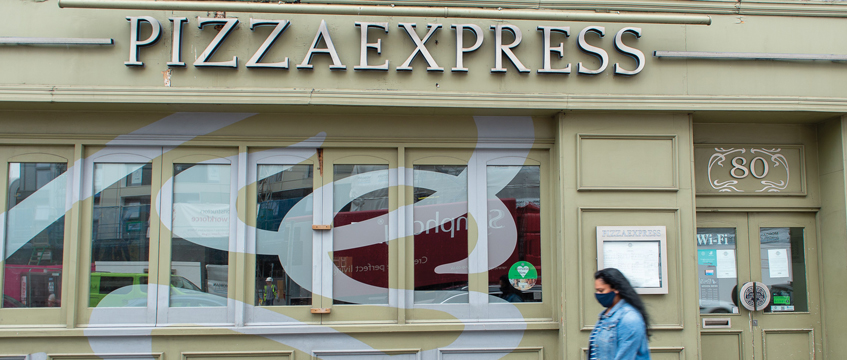Pizza Express landlord fails in bid to terminate Exeter restaurant’s tenancy
The landlord of a Pizza Express restaurant in Exeter has failed in his bid to terminate the restaurant’s lease after a judge cast doubt on his business plan.
Landlord Terence Macey owns the building that houses Pizza Express in Cathedral Yard, Exeter. The 25-year lease expired in August 2020. The restaurant is still occupying the premises under the same terms, as a sitting tenant under the Landlord and Tenant Act.
Under the terms of the Act, a landlord can terminate the lease of a sitting tenant if that landlord “intends” to occupy the building for the purposes of a business, run by the landlord.
The landlord of a Pizza Express restaurant in Exeter has failed in his bid to terminate the restaurant’s lease after a judge cast doubt on his business plan.
Landlord Terence Macey owns the building that houses Pizza Express in Cathedral Yard, Exeter. The 25-year lease expired in August 2020. The restaurant is still occupying the premises under the same terms, as a sitting tenant under the Landlord and Tenant Act.
Under the terms of the Act, a landlord can terminate the lease of a sitting tenant if that landlord “intends” to occupy the building for the purposes of a business, run by the landlord.
According to court documents, Macey sought to terminate the lease, saying he planned to run his own wine bar, with his family, from the building.
Pizza Express opposed the termination, and in a ruling handed down today (29 October) High Court Judge Marcus Smith backed the pizza chain, saying an earlier judge had been correct to question the viability of Macey’s plans.
The decision hinges on the definition of “intends”.
“The question central to the preliminary issue – and so to this appeal – is whether Mr Macey held the requisite intention,” the judge said.
“In the case of section 30(1)(g), that intention must be to occupy the premises for the purposes, or partly for the purposes, of a business to be carried on by him therein, or as his residence.
“Intention involves a decision in the landlord to bring about a certain state of affairs. That decision may not be tentative or indefinite, but – to use the language of later cases – must be ‘a firm and settled intention’,” the judge said.
Although Macey said he and his family had undertaken training and applied for licences, there was, according to the judgment “no evidence that he had incurred, to any degree that is significant, costs that demonstrate a commitment to move beyond contemplation and into the valley of decision”.
Marcus Smith J ruled that a lower court judge was entitled to conclude that Macey had not “demonstrated a real prospect of overcoming or surmounting the obstacles facing the hospitality industry in the centre of the city of Exeter at the height of the Covid-19 health emergency”.
“All the grounds of appeal fail,” Marcus Smith J ruled. “The appeal must be dismissed.”
Photo © Maureen McLean/Shutterstock











